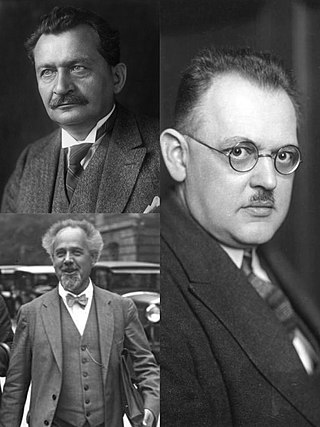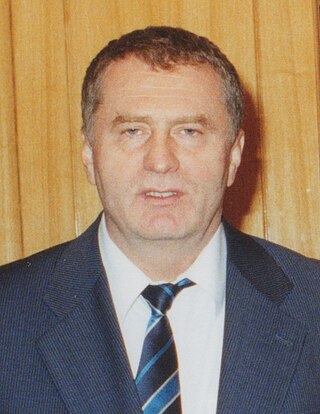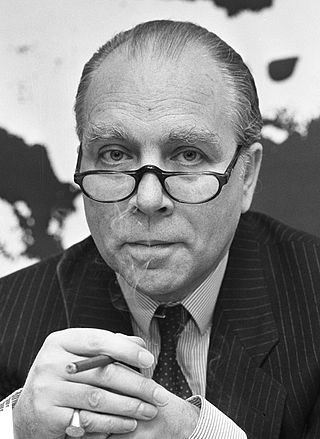
Bulgaria elects on the national level a head of state—the president—and a legislature. The president is elected for a five-year term directly by the people. The National Assembly has 240 members elected for a four-year term by proportional representation in multi-seat constituencies with a 4% threshold. Bulgaria has a multi-party system in which often no one party has a chance of gaining power alone and parties must work with each to form governments.

Presidential elections were held in Chile on 22 October 1925. They were the first direct presidential elections in the country's history and the first to be held under the new 1925 constitution. The result was a victory for Emiliano Figueroa, who received 72% of the vote.

Federal elections were held in Germany on 20 May 1928. The Social Democratic Party of Germany (SPD) remained the largest party in the Reichstag after winning 153 of the 491 seats. Voter turnout was 75.6%.

Federal elections were held in Germany on 12 January 1912. Although the Social Democratic Party (SPD) had received the most votes in every election since 1890, it had never won the most seats, and in the 1907 elections, it had won fewer than half the seats won by the Centre Party despite receiving over a million more votes. However, the 1912 elections saw the SPD retain its position as the most voted-for party and become the largest party in the Reichstag, winning 110 of the 397 seats.
Parliamentary elections were held in Czechoslovakia on 26 May 1946. The Communist Party of Czechoslovakia emerged as the largest party, winning 114 of the 300 seats with 38% of the vote. The Communist vote share was higher than any party had ever achieved in a Czechoslovak parliamentary election; previously, no party had ever won more than 25%. Voter turnout was 94%. The national results also determined the composition of the Slovak National Council and local committees.

Parliamentary elections were held in Slovakia on 17 June 2006. Direction – Social Democracy emerged as the largest party in the National Council, winning 50 of the 150 seats. Its leader Robert Fico was appointed Prime Minister on 4 July 2006, leading a three-party centre-left populist coalition.

Parliamentary elections were held in Russia on 12 December 1993. They were the first parliamentary elections in post-Soviet Russia and the only time to the Federation Council, with future members appointed by provincial legislatures and governors.

General elections were held in Ecuador on 20 October 2002, with a second round of the presidential elections on 24 November. The result was a victory for Lucio Gutiérrez of the PSP–MUPP–NP alliance, who won the run-off with 54.8% of the vote. The Social Christian Party emerged as the largest party in the National Congress, winning 24 of the 100 seats.

General elections were held in Belgium on 8 November 1981. Voter turnout was 94.5% in the Chamber election and 94.6% in the Senate election. Elections were also held for the nine provincial councils and for the Council of the German Cultural Community. They were the first elections after the voting age was lowered from 21 to 18. This contributed to the success of the socialist parties and the green parties.

General elections were held in Malta on 8 March 2008 to elect all members of the House of Representatives They were held alongside local elections.
Elections to the eleventh Supreme Soviet were held in the Soviet Union on 4 March 1984. They were the last in the Soviet Union to be held before Mikhail Gorbachev's policies of perestroika and demokratizatsiya resulted in partially free elections in 1989. They were also the last direct elections to the Supreme Soviet, as in 1989 deputies were elected to the Congress of People's Deputies, who then elected the Supreme Soviet.

General elections were held in Bolivia on 9 July 1978. The elections were the first held since 1966, with several military coups taking place during the late 1960s and early 1970s. Although Juan Pereda of the Nationalist Union of the People won the presidential elections according to official statements, more votes were cast than there were registered voters. After examining a number of allegations of fraud and other irregularities, the Electoral Court decided to annul the results on 20 July. The following day, Pereda was installed as President following a military coup. Pereda himself was overthrown by yet another military coup in November, which saw General David Padilla assume the presidency. Fresh elections were held the following year, with Padilla transferring power to his democratically elected successor, Wálter Guevara.

Presidential elections were held in Colombia on 30 May 1982. The result was a victory for Belisario Betancur of the Conservative Party–National Movement, who received 46.8% of the vote.
Parliamentary elections were held in Hungary on 25 and 26 January 1920. However, they were only held in 164 districts. After the Treaty of Trianon was signed, the 44 districts previously occupied by Romania voted between 13 June and 5 July, whilst the 11 districts occupied by Serbia did not vote until 30 and 31 October 1921. The election was held with compulsory voting. In protest at this and other changes to the franchise that left 60% of the voting age population unable to vote, the Hungarian Social Democratic Party boycotted the elections, and called for its supporters to cast invalid votes, resulting in an unusually high number of blank or invalid votes – 12% in the January elections and over 20% in Budapest and other major cities.
Parliamentary elections were held in Hungary between 8 and 15 December 1926. The result was a victory for the Unity Party, which won 161 of the 245 seats in Parliament. István Bethlen remained Prime Minister.

General elections were held in Italy on 8 November, with a second round of voting on 15 November. They were a snap election, called by Prime Minister Marco Minghetti to strengthen his majority.

Parliamentary elections were held in Latvia on 7 and 8 October 1922. The Latvian Social Democratic Workers' Party remained the largest party, winning 30 of the 100 seats.

General elections were held in Portugal on 28 April 1918, following a coup by Sidónio Pais in December 1917. The elections were boycotted by the Democratic Party, the Evolutionist Party and the Republican Union, who had won over 90% of the seats in the 1915 elections.
General elections were held in Romania in June 1931. The Chamber of Deputies was elected on 1 June, whilst the Senate was elected in three stages on 4, 6 and 8 June. The result was a victory for the governing National Union, an alliance of the National Party, the National Liberal Party, the German Party, the Agrarian Union Party, the Vlad Ţepeş League, the Agrarian League and several other parties. The Union won 289 of the 387 seats in the Chamber of Deputies and 108 of the 113 seats in the Senate elected through universal vote. The five seats won by the Communist-dominated Peasant Workers' Bloc were ultimately invalidated by the new Parliament.
Presidential elections were held in Colombia on 1 May 1966. Under the National Front agreement, it was the turn of the Liberal Party to govern, and so all candidates were members of the party. The result was a victory for Carlos Lleras Restrepo, who received 71.8% of the vote.















